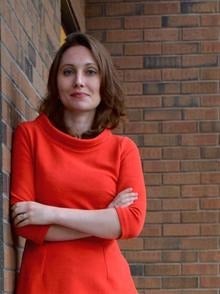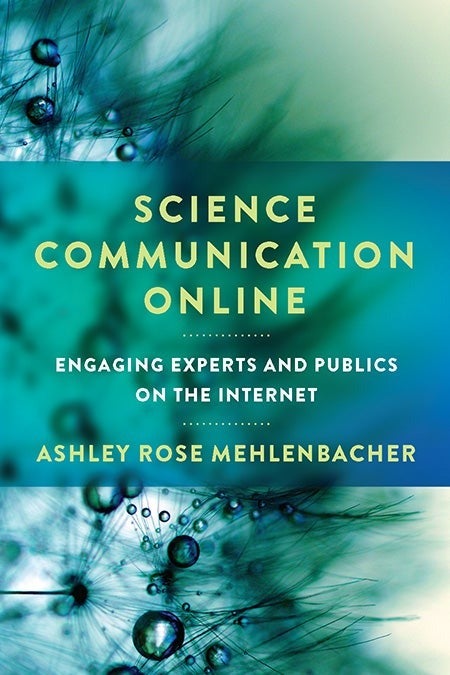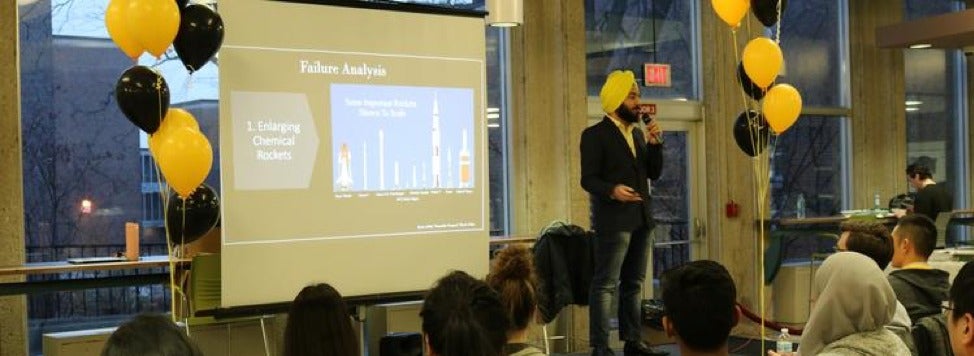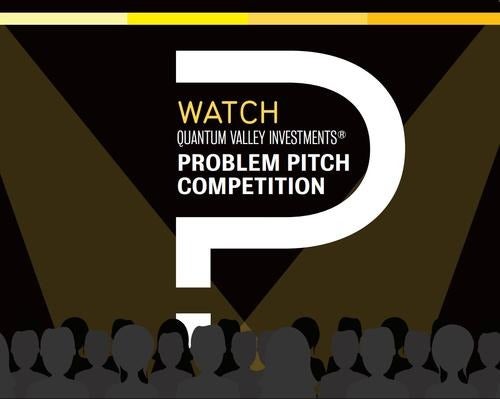Editor:
Brandon Sweet
University Communications
bulletin@uwaterloo.ca
Understanding new ways to communicate science online
This article was originally published on Waterloo Stories.
When the Fukushima Daiichi nuclear disaster happened in 2011, a group of citizens organized to collect radiation readings to share with residents in the area. That group became Safecast, an international volunteer citizen science group dedicated to generating accurate open data on the environment.

“The public would never have had access to such information during Chernobyl or Three Mile Island,” says Ashley Rose Mehlenbacher, a professor of English specializing in the rhetoric of science. “Safecast is an exemplar of citizen science groups that harness the internet to gather and make relevant data accessible.”
The growth of citizen science is one case where we see how the rise of the internet has fueled public engagement with science, says Mehlenbacher. “Likewise, scientists themselves are engaging much more directly with broad publics through online platforms such as blogs, crowdfunding sites, and open-access databases.” When it’s done well, she says, science communication online offers novel and accessible ways for the public to engage with—not simply consume—scientific research.
Doing science communication well is crucial when it comes to problems like climate change denial and the surging anti-vaccination movement. “As science and technology continue to permeate our lives,” says Mehlenbacher, “scientists and technologists are increasingly implicated in the discussions. So, are we having technical or democratic discussions? It depends, and we need to understand the difference.”
Her expertise in rhetorical studies of science shows researchers and students, including hundreds of students here at Waterloo, how to “think about the broader context in which their work is situated and how they can address issues of audience, credibility, and trust in a particular situation.”
Trans-scientific communication bridges research and public conversations

In Mehlenbacher’s book, Science Communication Online: Engaging Experts and Publics on the Internet, published by The Ohio State University Press this spring, she takes a deep dive into “trans-scientific” genres online — including blogs, crowdfunding, and databases. The term trans-science comes from nuclear physicist Alvin Weinberg who coined it to express the notion that there are scientific questions that science alone cannot answer. The book shows how online genres adapt features of both professional science communication with popular forms to offer new ways for researchers and members of the public to engage on issues relevant in science and society.
As a resource for anyone—scientists, students, or interested citizens—the book helps readers understand how rhetorical elements of communication can enable better conversations about science and technology. For instance, Mehlenbacher looks at the science-focused crowdfunding site Experiment and explains how its research funding pitches are modelled on a set of argument “moves” established by genre scholar John Swales to effectively communicate the research project’s context, significance, and contribution. Combined with popular science features that promote or market the work, “these moves in online proposals respond to the growing expectation that science should be embedded in an ongoing public conversation focused on a current problem that offers a novel solution.”
Training the next generations of scientists and technologists to engage
Understanding how the communication landscape is changing for science is important as we train new generations working in both scientific and related interdisciplinary fields. Mehlenbacher recently helped to design the new communication courses for Waterloo students in STEM disciplines (replacing the English Language Proficiency Exam). “These courses offer an important intervention early on in a student’s career to help them understand argumentation norms in their field, as well as how different fields create knowledge. In addition to traditional genres of science communication, understanding the nuances of science communication in online spaces will give students an advantage whether they become research scientists, clinical professionals, or industry scientists.”
Mehlenbacher’s research and teaching activity includes membership in interdisciplinary campus groups such as the Science and Technology in Society Teaching Group, The Games Institute, and the Waterloo Artificial Intelligence Institute. Her current research, supported by an Ontario Early Researcher Award and SSHRC Insight Grant, includes interviews with STEM researchers and citizen scientists to investigate how expertise is assessed within multidisciplinary teams.
Science Communication Online: Engaging Experts and Publics on the Internet can be downloaded free as an open access copy under a Creative Commons license.
If you've got a problem, these teams will solve it

The Problem Lab is inviting members of the University community to watch the Quantum Valley Investments® Problem Pitch Competition on Thursday, July 11.
The competition invites teams of up to four students to choose an important industry problem and thoroughly research its history, scope, and impact. These student teams have chosen their industry problems and will now pitch their research to a panel of judges for a chance to win up to $30,000 in grant funding. The 5-minute pitches will demonstrate each competitor’s knowledge of their problem.

Two different pitch categories will be presented: Billion Dollar Problems and Open Problems. The funding provided will go toward R&D to develop a solution to the problem pitched.
Teams with the best understanding of an important problem will receive $7,500 to research and develop a solution to the identified problem. Teams will have an opportunity to double their prize winnings post-event if they are able to demonstrate financial need and progress over time, in consultation with The Problem Lab.
The first of its kind in Canada, the University of Waterloo's Problem Lab is designed to help innovators create ventures of significant economic and social consequence. The more important the problem, the more challenging it will be to understand. The Problem Lab specializes in understanding important problems, the first essential step of disruptive innovation, and assists established organizations, newly created ventures, and aspiring entrepreneurs alike.
The event takes place on the second floor of the Engineering 7 building from 7:00 p.m. to 10:00 p.m.
Link of the day
Nunavut Day (oh, and happy 20th anniversary, Nunavut!)
When and Where
Dissertation Boot Camp, Monday, July 8 to Thursday, July 11.
Goose Week 2: the beak-uel, Monday, July 8 to Friday, July 12, Dana Porter and Davis Centre libraries.
What do geese meme to you? contest, Monday, July 8 to Thursday, July 11.
Wild goose chase, Monday, July 8, 11:30 a.m. to 12:30 p.m., South Campus Commons. You must register for this event.
Understanding the Pension Plan and your Annual Statement, Tuesday, July 9, 12:00 p.m. to 1:00 p.m., DC 1301 (Fish Bowl).
Goose green screen, Tuesday, July 9, 12:00 p.m. to 1:00 p.m., Dana Porter Library.
NFRF Exploration Grant webinar, offered in English, for faculty, Tuesday, July 9, 1:00 p.m. to 3:00 p.m., Davis Centre, Room 1302.
Duck, duck, goose, Tuesday, July 9, 1:30 p.m. to 2:30 p.m., Davis Centre Quad.
Eating Disorder Support Group, Tuesday, July 9, 4:00 p.m., NH 3308.
Get a Job Using LinkedIn, Tuesday, July 9, 4:30 p.m. to 6:30 p.m., LIB 329.
Science 101 Day, Wednesday, July 10.
The goose that laid the golden egg in the Library, Wednesday, July 10, Dana Porter Library.
NFRF Exploration Grant webinar, offered in French, for faculty, Wednesday, July 10, 10:00 a.m. to 12:00 p.m., East Campus 5, Room 3167.
Discover Your Career Values (for employees only), Wednesday, July 10, 12:00 p.m. to 1:00 p.m., TC 2218.
Alleviating Anxiety Seminar, Wednesday, July 10, 1:00 p.m., HS 2302.
Coping Skills Seminar - Empowering Habit Change, Wednesday, July 10, 4:00 p.m., HS 2302.
Information Session for Graduating Students, Wednesday, July 10, 4:00 p.m. to 4:50 p.m., STC 0020.
Part-Time Master of Business, Entrepreneurship and Technology Info Session, Wednesday, July 10, 6:00 p.m. to 7:00 p.m., online.
Velocity Start: Setup Your Business Like A Boss, “A workshop that will show legal and accounting considerations that will affect your new business,” Wednesday, July 10, 7:30 p.m., Velocity Start, SCH 2nd Floor.
Goose (art) attack, Thursday, July 11, 12:00 p.m. to 1:00 p.m., Arts Quad.
Information Session for Graduating Students, Thursday, July 11, 11:30 a.m. to 12:20 p.m., STC 0020.
Exploring Your Personality Type (Myers-Briggs Type Indicator) Part II, Thursday, July 11, 12:30 p.m. to 2:30 p.m., TC 1214.
NSERC Discovery Grant drop-in sessions for faculty, Thursday, July 11, 2:00 p.m. to 3:00 p.m., Engineering 7, Room 7411.
Graduate Student Stress Management Group, Thursday, July 11, 3:30 p.m., HS 2302.
Résumés, Careers, and Personal Branding – Part I, Thursday, July 11, 4:30 p.m. to 6:30 p.m., LIB 329.
NEW - The Problem Lab presents the Quantum Valley Investments® Problem Pitch, Thursday, July 11, 7:00 p.m. to 10:00 p.m., Engineering 7 second floor.
CBB Biomedical Discussion Group with Dr. Ali Boolani, “Feelings of energy and fatigue influence different aspects of gait and postural control,” Friday July 12, 2:30 p.m., EC4-2101a.
Speak Like a Scholar, Monday, July 15 to Thursday, July 18.
NFRF Exploration Grant webinar, offered in French, for faculty, Monday, July 15, 1:00 p.m. to 3:00 p.m., East Campus 5, Room 3167.
NSERC Discovery Grant drop-in sessions for faculty, Monday, July 15, 1:00 p.m. to 2:00 p.m., Mathematics and Computer Building, Room 5248.
Arts 101 Day, Tuesday, July 16.
NEW - Integrated LEARN Retreat, Tuesday, July 16.
NEW - Consent Clothesline, Tuesday July 16, 11:00 a.m. to 2:00 p.m., SLC Great Hall.
Get STARTed: SSHRC Grant Writing Sessions in July and August, Tuesday, July 16, 1:00 p.m., HH 373.
NSERC Discovery Grant drop-in sessions for faculty, Tuesday, July 16, 1:00 p.m. to 2:00 p.m., Student Teaching Complex, Room 2002.
NEW - Integrated LEARN Retreat, Wednesday, July 17.
NEW - MySharePoint sites will become read-only, Wednesday, July 17. Instructions on moving content is available on the SharePoint website.
NFRF Exploration Grant webinar, offered in English, for faculty, Wednesday, July 17, 10:00 a.m. to 12:00 p.m., Davis Centre, Room 1302.
NSERC Discovery Grant drop-in sessions for faculty, Wednesday, July 17, 2:00 p.m. to 3:00 p.m., Psychology, Anthropology, Sociology (PAS), Room 2438.
Billion Dollar Briefing, “Get introduced to five different billion-dollar problems that are waiting to be solved,” Wednesday, July 17, 7:30 p.m., Velocity Start, SCH 2nd Floor.
Mathematics 101 Day, Thursday, July 18.
NEW - International Education Week planning meeting, Thursday, July 18, 1:00 p.m., EIT 1015. RSVP via Eventbrite.
Graduate Student Stress Management Group, Thursday, July 18, 3:30 p.m., HS 2302.
Waterloo Institute for Complexity and Innovation (WICI)’s Graduate Student Complexity Seminar, Thursday, July 18,, 4:30 p.m. to 5:30 p.m., STC 1019 (speaker and topic TBA).